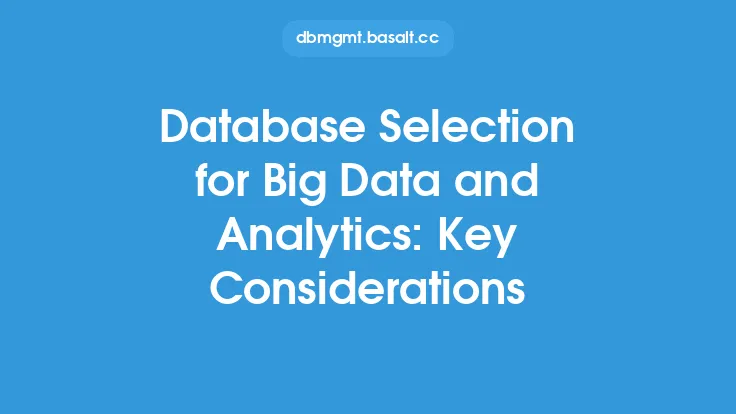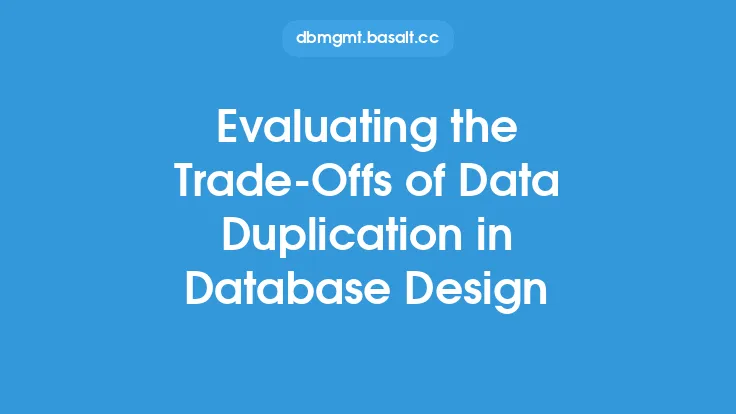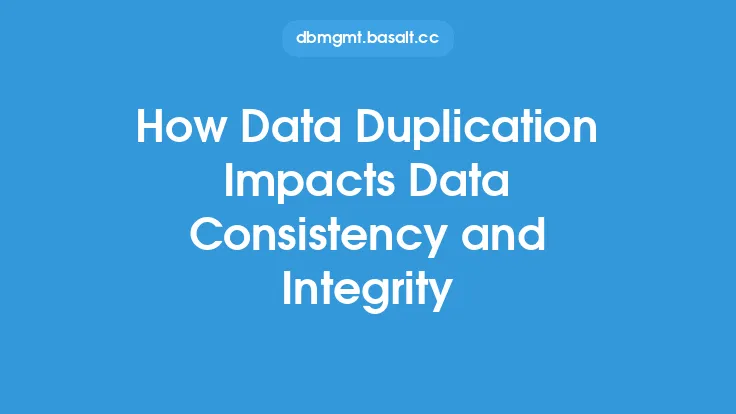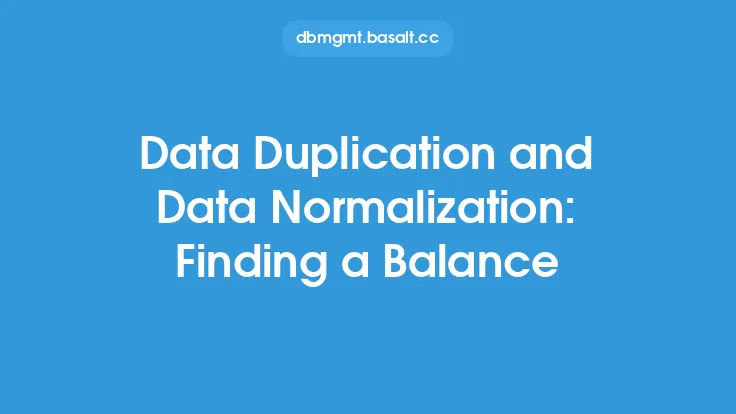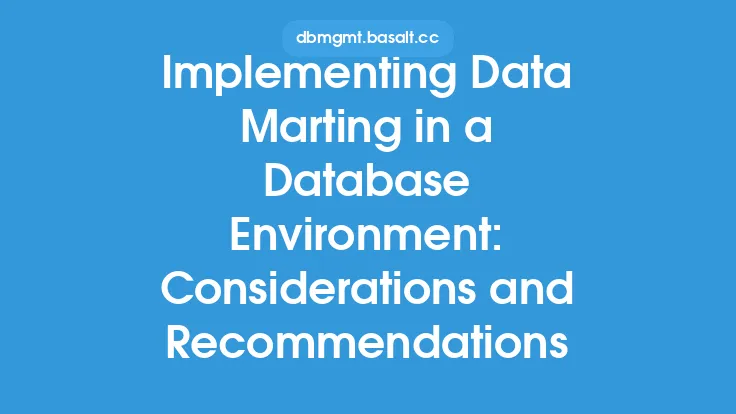Data duplication is a fundamental concept in data denormalization, which involves intentionally storing redundant data to improve system performance, reduce complexity, or enhance data accessibility. However, this approach also raises important considerations regarding data governance, as it can lead to inconsistencies, inaccuracies, and security risks if not managed properly. In this article, we will delve into the implications of data duplication on data governance, exploring the key considerations and best practices for ensuring the integrity and reliability of duplicated data.
Introduction to Data Governance
Data governance refers to the set of policies, procedures, and standards that ensure the accuracy, completeness, and security of an organization's data assets. Effective data governance is critical in today's data-driven world, as it enables organizations to make informed decisions, comply with regulatory requirements, and maintain stakeholder trust. When data duplication is introduced into a system, it can compromise data governance if not properly managed, leading to data inconsistencies, errors, and potential security breaches.
Data Duplication and Data Quality
Data quality is a critical aspect of data governance, and data duplication can have a significant impact on it. When data is duplicated, there is a risk of inconsistencies and discrepancies between the original and duplicated data. This can occur due to errors in data entry, updates, or synchronization, leading to inaccurate or outdated information. To mitigate this risk, organizations must implement robust data validation and verification processes to ensure that duplicated data is accurate and consistent. Additionally, regular data audits and quality checks can help identify and rectify data inconsistencies, maintaining the overall quality of the data.
Data Security and Access Control
Data security is another essential consideration in data governance, and data duplication can increase the risk of unauthorized access or data breaches. When data is duplicated, it can be stored in multiple locations, making it more vulnerable to security threats. To address this risk, organizations must implement robust access controls, ensuring that only authorized personnel can access and modify duplicated data. Encryption, secure data storage, and regular security audits can also help protect duplicated data from unauthorized access or malicious activities.
Data Synchronization and Update Mechanisms
Data synchronization and update mechanisms are critical in maintaining data consistency and accuracy when data duplication is involved. Organizations must implement reliable mechanisms to ensure that changes to the original data are reflected in the duplicated data, and vice versa. This can be achieved through automated synchronization processes, data replication techniques, or manual updates, depending on the specific requirements and complexity of the system. Regular monitoring and testing of these mechanisms can help identify and resolve any issues, ensuring that duplicated data remains consistent and up-to-date.
Compliance and Regulatory Requirements
Compliance with regulatory requirements is a critical aspect of data governance, and data duplication can impact an organization's ability to comply with relevant laws and regulations. Depending on the industry and jurisdiction, organizations may be subject to specific requirements regarding data storage, security, and retention. When data is duplicated, organizations must ensure that all copies of the data comply with relevant regulations, such as data protection laws, financial regulations, or healthcare standards. This may involve implementing specific data handling procedures, conducting regular audits, and maintaining detailed records of data storage and access.
Organizational Culture and Awareness
Finally, organizational culture and awareness play a vital role in ensuring effective data governance in the context of data duplication. All stakeholders, including employees, managers, and executives, must understand the implications of data duplication and the importance of maintaining data integrity and security. Organizations should promote a culture of data awareness, providing training and education on data governance best practices, and encouraging employees to report any data-related issues or concerns. By fostering a culture of data responsibility, organizations can ensure that data duplication is managed effectively, minimizing the risks and maximizing the benefits of this approach.
Conclusion and Recommendations
In conclusion, data duplication can have significant implications for data governance, and organizations must carefully consider these implications when implementing data duplication strategies. By understanding the potential risks and challenges associated with data duplication, organizations can take proactive steps to ensure the integrity, security, and compliance of their data assets. To achieve effective data governance in the context of data duplication, organizations should prioritize data quality, security, and synchronization, while also promoting a culture of data awareness and responsibility. By following these recommendations and best practices, organizations can harness the benefits of data duplication while minimizing its risks, ultimately maintaining the trust and confidence of their stakeholders.
